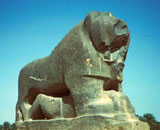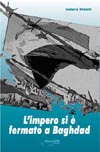Truthout, March 16, 2010
A law that provides blanket immunity and pardons former members of Afghanistan’s armed factions for war crimes and human rights abuses committed prior to December 2001 was quietly enacted three years ago by parliament, despite previous assurances by President Hamid Karzai that he would not sign it or allow it to take effect.
According to Waheed Omer, Karzai’s spokesman, the amnesty law was enacted because it was approved by two-thirds of parliament and therefore did not need Karzai’s signature. Parliament is made up largely of former warlords who were accused by Afghans and human rights groups of war crimes.
"This law was passed with a two-thirds majority in our parliament, and according to our constitution, when a law is passed with a two-thirds majority, it does not require the president to sign it," Omer said during a briefing Tuesday, publicly acknowledging for the first time the blanket immunity provision is now law. Omer’s comments were first reported by Reuters.
The International Center for Transitional Justice (ICTJ), an organization founded in 2001 that assists countries in their pursuit of accountability for mass atrocities or human rights abuses, said "blanket amnesties promote impunity and are currently deemed unlawful under international law."
Human rights groups learned that the law was enacted after it was published in Afghanistan’s official gazette.
"It is not clear when this happened, as the date on the gazetted law is December 2008, while some sources say it was not published until January 2010, when printed copies of the law were received by organizations that monitor the gazette," according to Human Rights Watch (HRW), which condemned the law and demanded that it be repealed.
According to Aunohita Mojumdar, a reporter based in Kabul, "in Afghanistan’s legislative process, a draft law must be ratified by parliament, signed by the president, and then published in an official gazette before it takes effect."
"The actual process is sometimes far murkier," Mojumdar wrote in a report published Tuesday on Eurasianet.org. "Parliament passed a controversial amnesty law - offering immunity to all those involved in past, present and future hostilities, including war crimes or crimes against humanity - in 2007. But the initiative generated considerable opposition from Karzai’s international allies and human rights groups who saw it as an attempt by former commanders-turned-MPs to give themselves immunity. Thus, the Reconciliation and General Amnesty Law was not immediately published.
"In January of this year, however, news spread that the law had been quietly printed in December of 2008. With the international community now behind Karzai’s reconciliation strategy, the government is now apparently hoping that the amnesty law will be accepted without creating too much of a stir."
When it passed in early 2007, the National Reconciliation, General Amnesty and National Stability Law said anyone engaged in armed conflict before the formation of the Interim Administration in Afghanistan shall "enjoy all their legal rights and not be prosecuted."
The law provides amnesty to "all political factions and hostile parties who were involved in a way or another in hostilities before establishing of the interim administration [in December 2001]," including "those individuals and groups who are still in opposition to the Islamic Republic of Afghanistan and cease enmity after the enforcement of this resolution and join the process of national reconciliation and respect the constitution and other laws and abide them."
HRW said last week that the amnesty law "was passed at a time when Afghan public opinion was beginning to mobilize against warlords and impunity."
"An opinion survey published by the Afghan Independent Human Rights Commission (AIHRC) in 2005 indicated that large majorities favored prosecutions," according to HRW, which documented some of the widespread human rights abuses that took place between 1992 and 1993 in a report, "Blood Stained Hands: Past Atrocities in Kabul and Afghanistan's Legacy of Impunity." "The Afghan government, the United Nations, the Commission, donor governments and others were involved in discussions about addressing past abuses through the government's 'Transitional Justice Action Plan.'"
In 2006 the government launched the Action Plan for Peace, Reconciliation and Justice in Afghanistan, which makes clear commitments to: 1) acknowledge the suffering of the Afghan people; 2) ensure credible and accountable state institutions and purge human rights violators and criminals from the state institutions; 3) undertake truth-seeking and documentation; 4) promote reconciliation and improvement of national unity; and (5) establish a task force to recommend an additional accountability mechanism.
Brad Adams, HRW’s Asia director, whose organization called on the Karzai government to repeal the law, said, "Afghans have been losing hope in their government because so many alleged war criminals and human rights abusers remain in positions of power."
"The amnesty law was passed to protect these people from prosecution, sending a message to Afghans that not only are these rights abusers here to stay, but more might soon be welcomed in," Adams said.
In a statement, The Transitional Justice Coordination Group (TJCG), which is made up of a coalition of 24 civil society organizations, called upon Karzai’s government to immediately suspend the law "with a view to its eventual abolishment."
"The TJCG contends that rather than promote reconciliation and stability, by granting a blanket amnesty this law promotes impunity and prevents genuine reconciliation," the group said. "Accountability, not amnesia, for past and present crimes is a prerequisite for genuine reconciliation and peace in Afghanistan. All Afghans will suffer as a result of implementation of this law, which undermines justice and the rule of law."
"The government of Afghanistan does not have the right to usurp the rights of victims. Only the victims have the right to forgive perpetrators," the group added. "But the state has a duty to investigate and prosecute war crimes, crimes against humanity and other serious human rights violations such as disappearances, torture and extra judicial killings."
Although a provision in the amnesty law allows victims of atrocities to file individual claims against alleged perpetrators, TJCG said it "places an unfair burden upon victims, who have already suffered so much and would put themselves at risk of reprisals given the impunity that prevails in Afghanistan today."
"This provision is particularly impractical so far as it concerns women and the many victims of sexual violence, who already face considerable barriers to obtaining justice," TJCG said. "Provision for the granting of amnesty in respect of future crimes further undermines the legitimacy of the law and serves as an open invitation for the continued commission of abuses with impunity."
Karzai’s government includes high-level officials who were accused of war crimes. According to Reuters, both of Karzai’s vice presidents "are former leaders of armed groups whose factions squabbled for control of Kabul in the 1990s, when thousands of civilians were killed and hundreds of thousands fled their homes."
His style of governing has been harshly criticized by US officials, including Ambassador Karl Eikenberry, who warned President Obama in two top-secret cables last year against sending additional troops to the country until Karzai began to take steps to root out corruption in his government.
So far, neither the Obama administration, United Nations officials or others in the international community have discussed the amnesty law. On Monday evening, Obama and Karzai spoke for more than an hour via a video teleconference about the US commitment to the region. But the amnesty law did not come up during their conversation.
















